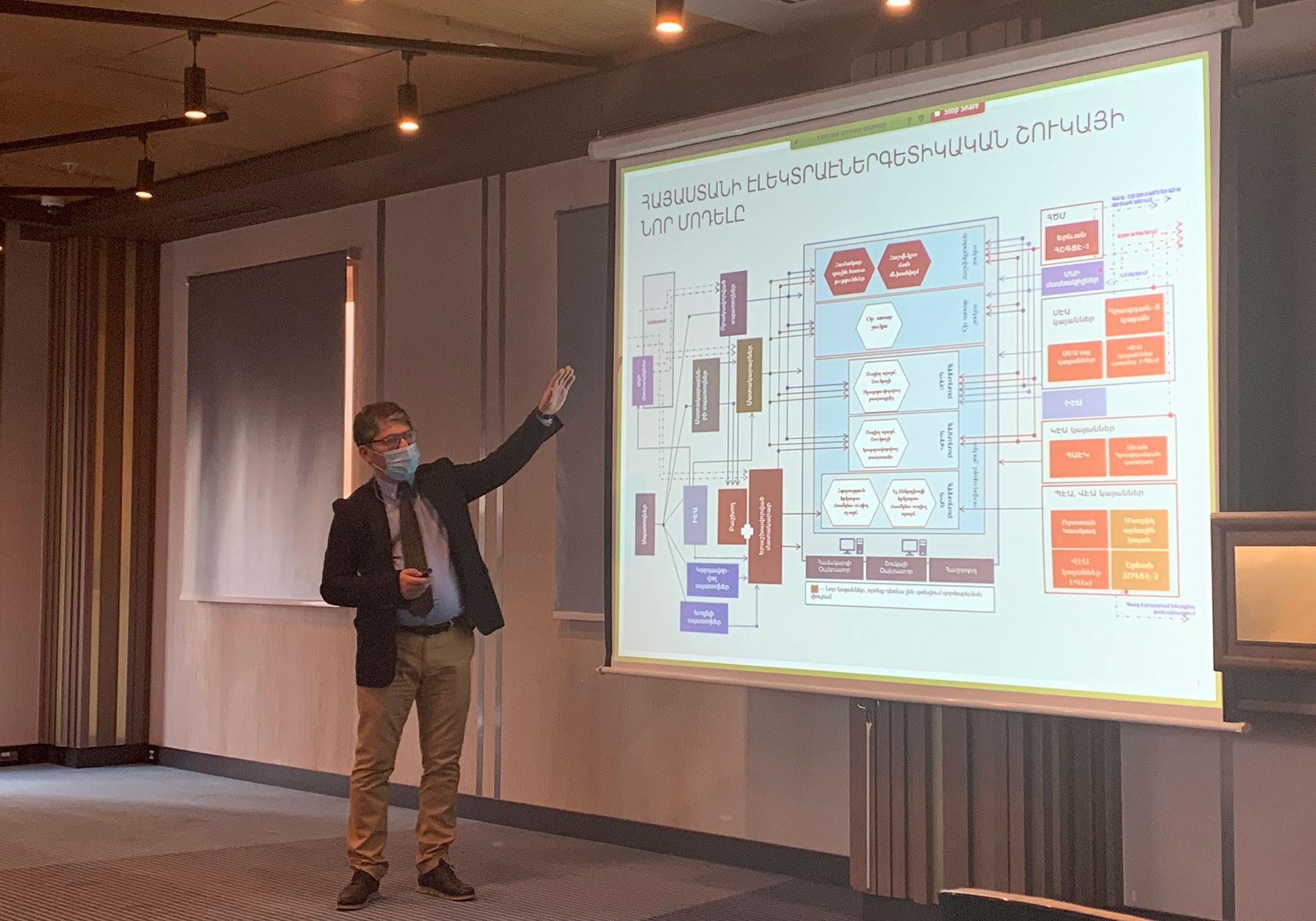
Liberalizing Armenia's Energy Market: USAID Project Will Provide Purchase Options to Consumers
Giving consumers more options when it comes to choosing their electricity supplier is one of the aims of a $8 million USAID initiative (Market Liberalization and Electricity Trade (MLET) project) launched in Armenia in December 2018.
“This $8 million initiative will help Armenia to diversify its energy supply, liberalize the energy marketplace, and foster energy independence,” said Brock Bierman, then USAID Bureau for Europe and Eurasia Assistant Administrator, when the project was unveiled.
Today, MLET Deputy Head Abgar Budaghyan gave a PowerPoint presentation on the project, showing how Armenia’s liberalized energy sector, replete with producers, utilities, traders and consumers, will differ from the current system.
Budaghyan said that with the envisaged changes, electricity will also be available for purchase online. All transactions and payments will be possible through a special online platform.
The market liberalization program will be implemented over a period of five years and will assist the government in three directions: development of the energy market, diversification of energy supply, and interstate trade to promote electricity trade.
As Budaghyan explained, the aim is to support the government in the difficult process of electrification, to try to develop new rules that will be closer to EU standards, to create a more favorable environment for new investments in the energy sector, which will also contribute to economic development.
The speaker said there’s a need to create a transparent environment for market liberalization, protect consumers, create new opportunities for interstate trade, and to make the sector attractive for investors.
What does liberalization entail?
Manufacturers, distributors and suppliers will remain the same in the new market, but several new suppliers will emerge between them and consumers.
Electric Networks of Armenia (ENA) will remain a distributor and will continue to sell electricity.
Consumers, ordinary residents who prefer to maintain their current status will not be affected by the new changes if they do not want to change their supplier. Wholesale traders will also be introduced to the new market. Their job will be to create conditions in trade relations with both local and neighboring countries allowing the parties to make mutually beneficial transactions.
When this reporter asked if the notion of creating greener, cleaner energy was included in this program, Budaghyan answered in the affirmative.
"As you can see, the latest EU package is mainly aimed at that. Clean energy must be used as much as possible in the markets. Of course, this process is quite complicated because there is competition. We are constantly trying to create favorable conditions for the use of renewable resources in Armenia,” Budaghyan said.
Reforms have begun
Budaghyan noted that reforms in the electricity market in Armenia, in fact, took place in 2004 on a large scale. The process of market liberalization started in 2018. New licensing rules were approved, and at the end of 2019 new rules were developed for wholesale and retail trade.
The USAID project seeks to support government plans to diversify the energy supply and thus make it possible to plan the development in the energy sector, to have an efficient system, and to minimize the costs of implementing that system for consumers. The first survey was conducted two years ago, and the second will start in April.
For long-term planning, a system security assessment is being drafted to clarify how much renewable energy potential can be used, to increase efficiency, and to achieve development at the lowest cost.
Budaghyan said that the development of renewable energy resources is one of the main components of ensuring energy security in Armenia since it depends on imported resources.
To develop interstate trade, work is being done with Georgia to harmonize the Georgian by-laws in the energy sector with the Armenian one. It will give an opportunity to trade with Georgia. There is a joint working group discussing ongoing work and future plans.
 Videos
Videos Photos
Photos
Write a comment